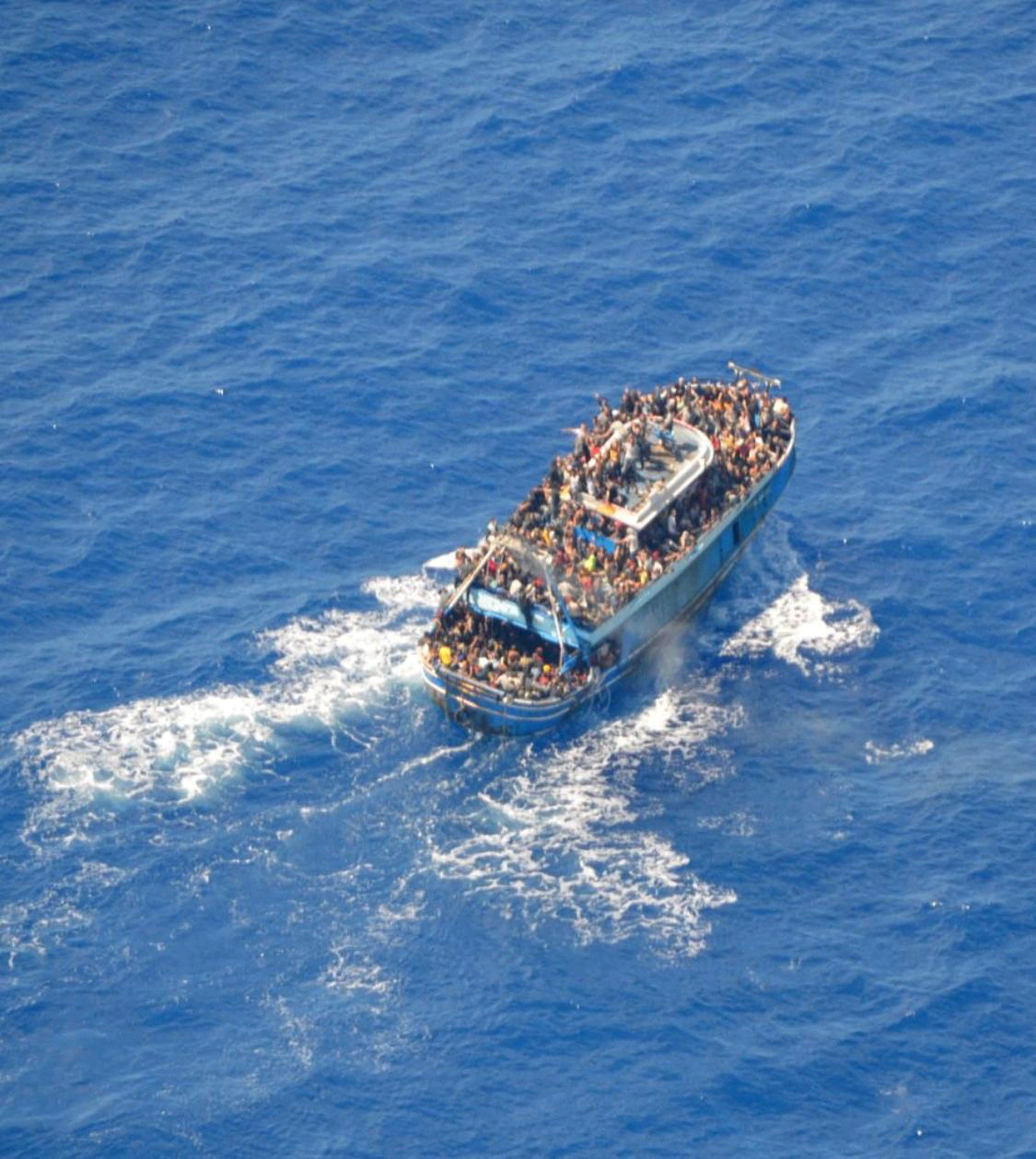Greek authorities reportedly knew that nine survivors of the June 2023 Pylos shipwreck, accused of migrant smuggling, were likely innocent.
Despite evidence to the contrary, the “Pylos 9” — all Egyptian nationals — were imprisoned for over a year before a Kalamata criminal court ruled it lacked jurisdiction and released them, according to an investigative report by Solomon and Arab Reporters for Investigative Journalism (ARIJ), published in El País, Die Tageszeitung, and The New Humanitarian.
The Pylos shipwreck involved the Adriana, a fishing trawler carrying hundreds of migrants, which capsized 50 nautical miles southwest of Greece. It resulted in at least 82 confirmed deaths, though survivors claim closer to 500 people perished, making it one of the Mediterranean’s deadliest maritime tragedies.
Greek Authorities Ignored Evidence of Innocence
The investigative report by Solomon and ARIJ, based on 700 pages of internal Egyptian government documents, revealed critical evidence ignored by Greek authorities. Egyptian prosecutors had identified 36 members of the smuggling network behind the Adriana. By late June 2023, 23 suspects had been arrested, and 13 had fled to Libya. Importantly, the documents confirmed that none of the nine Egyptians arrested in Greece were part of the smuggling network.
Instead, the Pylos 9 were victims who had paid smugglers between €2,680 and €3,065 for passage on the overcrowded trawler. Egypt’s investigation findings, shared with Greece in July 2023, included detailed evidence exonerating the nine men. Despite repeated requests for mutual legal assistance, Greece delayed responding and eventually refused to collaborate further, citing jurisdictional constraints.
An official Egyptian delegation, led by the Egypt’s Assistant Foreign Minister for Consular Affairs, visited Greece to meet the Pylos 9. According to an internal memo cited by Solomon, the delegation alleged that Greek authorities had blamed the nine Egyptians to “divert attention away from their own role” in the tragedy.
Discrepancies and Allegations of a Cover-up
Pylos Shipwreck- Pylos 9 Acquittal
The criminal court in Kalamata eventually dropped the case against the Pylos 9, citing lack of jurisdiction, and acquitted the accused.
The Solomon report notes the irony of the court’s decision, as defense lawyers earlier requests to dismiss the case on jurisdictional grounds had been denied. Critics argue that the acquittal benefited Greek authorities by avoiding a public trial that might have revealed misconduct.



